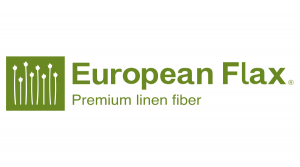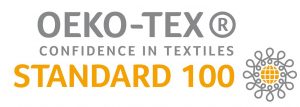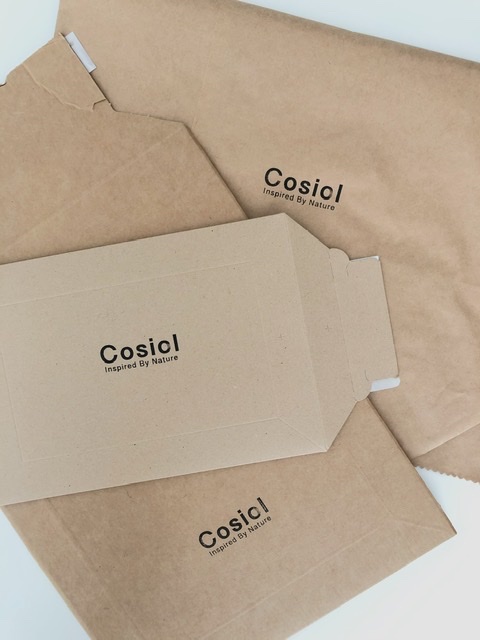The planet needs a glow up.
Certified Materials

European Flax® certification:
Linen has its own specific culture and supply chain. Its use includes general textiles and household textiles, as well as high-performance technical products, such as composite materials.
A label was created to improve products and meet the expectations of consumers/purchasers in terms of quality and traceability of the fibre: European Flax®.
European Flax® is the quality visa of premium European linen fibre for all uses.
It preserves, highlights and protects an exclusively European form of agriculture and industry, its regional origins and its non-relocatable and inherent know-how.
The European Flax® manifesto, signed by all linen producers, guarantees local crop-growing volumes that respect the environment: zero irrigation, zero GMOs (Genetically Modified Organisms) and zero waste, adapting imperfections in the cycle to the best environmental practices, promoted by the Cradle to Cradle mark.
European Flax® is a process based on audits, requiring the entire supply chain, from producers to retailers, to be audited. The certification is provided by the CELC (European Confederation of Linen and Hemp) for companies that produce linen and linen fibre. European Flax® is certified by the Bast Fiber Authority. Companies processing or marketing bed linen and linen across all stages are certified by Bureau Veritas.

OEKO-TEX® Standard 100 Class 1 certification:
The STANDARD 100 by OEKO-TEX® is an independent certification and testing system that is the same around the world for all raw and semi-finished textile products at all processing levels, as well as for the additional materials used.
Since its introduction in 1992, the STANDARD 100 by OEKO-TEX® has focused on the development of testing criteria, limit values and testing methods with a scientific basis for hundreds of individual and regulated substances, taking into account:
– Important legal regulations, such as prohibited azo dyes, formaldehyde, pentachlorophenol, cadmium, nickel, etc.
– Numerous harmful chemical products, even if they are not legally regulated yet.
– Requirements in annexes XVII and XVI of the European chemical regulations (REACH), as well as the ECHA’s list of SVHC candidates, as long as they are relevant to threads, textiles, garments or accessories.
– Many classes of substances that are also environmentally relevant.
The STANDARD 100 by OEKO-TEX® certificate is the world’s leading ecological mark for textiles.
Vegan Materials

The Piñatex journey starts in the Philippines where the pineapple leaves, a by-product of pre-existing agriculture industry, are collected. The leaves (of the plant, not the fruit) are processed to extract the fibres and these are manufactured into a non-woven substrate. The Substrate is then sent to Spain where it is finished into Piñatex which then comes to London where Ananas Anam has its Headquarters.
Piñatex is non-woven textile, which is 100% vegan and PETA approved. Since waste is used to produce this textile, it has a low environmental impact and it is ethically sourced.
What is Piñatex?
Piñatex was developed as a natural based non-woven material that can be used as a sustainable alternative to consumers by offering a better choice for a better future. Piñatex was developed as a natural based non-woven material that can be used as a sustainable alternative to consumers by offering a better choice for a better future. Piñatex is made from pineapple leaf fibre, which is a by product of the agriculture industry. No extra land, water or pesticides are required to produce the raw material.
Piñatex is a versatile, lightweight and durable material, making it suitable for use across fashion and interior furnishings. We are working towards making the material strong enough to penetrate the automotive industry in the near future. The dyes used for Piñatex are GOTS approved and the resins comply with AFIRM standards. Piñatex is not just a textile but a New Material for a New World.
Using the waste of the top 10 pineapple growing countries we could theoretically replace over 50% of the global leather production without planting a single pineapple!
Piñatex aims to meet the challenges of our time by developing an innovative product in which commercial success is integrated with, and promotes, social, economical and cultural development.
Piñatex is made from pineapple leaf fibre, which is a by product of the agriculture industry. No extra land, water or pesticides are required to produce the raw material.

Piñatex is woven textile, Sustainable,Plant based material, Vegan, Leather alternative, Ethically, Sourced, Innovative, Ecological, Socially Responsible, Low environmental impact, PETA Approved, Biodegradable*

Linen
What is Linen: Brief History of Linen
Linen is a natural fiber made from the fibers of the flax plant, Linum usitatissimum. It has been used for centuries — since approximately 10,000 years ago — to make everything from canvases and wallpaper to clothing and bedding. Egyptians utilized linen’s durability for wrapping pharaoh mummies and Medieval knights donned linen shirts and pants under their armor. Over the years, people started using the word linens to refer to household goods, such as bedding, tablecloths, towels, etc. albeit not always made of actual linen fabric.
Linen is highly absorbent
Linen is hypoallergenic
Linen is breathable
The flax fiber, from which linen is made, is hollow and absorbs moisture well — to be precise, it can absorb up to 20% of its own weight in water before starting to feel damp.
Linen has many health properties — some claim it heals wounds faster and helps cure some skin diseases, such as eczema. But most importantly, linen is hypoallergenic and is perfect for those who have sensitive skin or suffer from allergies.
The flax plant is hollow allowing for higher air permeability, thus linen fabric dries out quickly and doesn’t stick to the body. Linen is also a natural insulator meaning it keeps you cool in the summer and retains heat from your body in the colder months.
Linen resists stains like no other fabric, so it is very easy to maintain the fabric clean. Linen is by far our most durable fabric, much more durable and stronger than cotton. Also, linen is highly mildew resistant.
- Linen is 30% stronger than cotton
- Strongly dirt-repellent
- Has a high moisture absorbency
- Structurally sound fiber so products keep their shape
- Environmentally friendly – less water and chemicals to cultivate
Plastic Free
OUR PACKAGING- Ensuring the sustainable development of forestry
Cosiol packaging are produced in Poland, supporting in this way European enterprise. Paper is a material that is recyclable and 100% biodegradable in a relatively short period of time. TOPPAC solid cardboard envelopes are made with strong solid cardboard of high grammage and of the highest quality. Our envelopes are made of 100% FSC-certified material, ensuring the sustainable development of forestry. FSC (Economically Viable Forest Management) certification guarantees that our packaging comes from forests where good environmental management is ensured.






